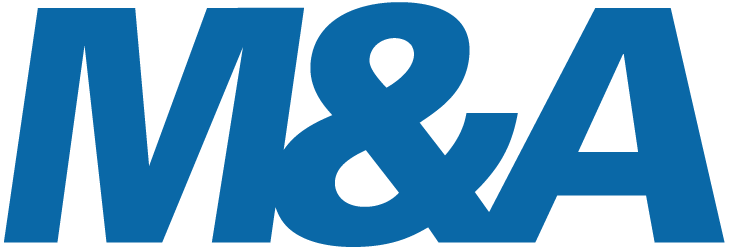Pitch Best Small Cap Deal 2021: Netafim acquires Gakon

Bekijk alle pitches & stem direct
| Name of the deal | Netafim, part of Orbia, acquires Gakon |
| Date | 1 April 2021 |
| Published value | € 5 – 50 million |
| Buyer(s) | Netafim Ltd. |
| Target | Gakon Holding B.V. and Gakon Sp.z.o.o. |
| Seller | Gakon shareholders |
Involved firms and advisors
Involved firms and advisors buy side:
DLA Piper (Legal Advisory Corporate M&A), PWC ( Financial Due Diligence)
Involved firms and advisors target:
Rembrandt F&O (M&A Advisory), Ruitenburg adviseurs en accountants (Legal Advisory Corporate M&A)
Involved firms and advisors sell side:
Rembrandt F&O (M&A Advisory), Ruitenburg adviseurs en accountants (Legal Advisory Corporate M&A)
Pitch
Brief description deal / Deal outline
Netafim, is an Israeli manufacturer of irrigation equipment. As part of their strategy to become a total solutions provider for greenhouses, they acquired Gakon, a Polish-Dutch greenhouse builder, in 2021.
Why should this deal win the Award for Best Deal 2021?
The acquisition of Gakon by Netafim is a match made in heaven. Netafim, the Israeli firm, is a leading player in water management and wanted to expand its product portfolio with greenhouse construction, the area of expertise of Gakon is active. Gakon has its own steel and aluminium department, as well as a construction and a calculation team. Gakon is able to deliver turn-key greenhouses and can completely unburden the client throughout the process. This deal therefore fits perfectly in the strategy of Netafim – “Greenhouse projects were already a strategic priority for Netafim, with Covid-19 further validating the importance of food security and a local fresh supply,” said Gabriel (Gaby) Miodownik, Netafim CEO. In our opinion, there are multiple reasons why this deal deserves the nomination for the M&A award. Both Gakon and Netafim operate in a market segment in which a lot of M&A activity is taking place. Boosted by strong and worldwide industry trends, there is strong demand for companies in greenhouse and related horticultural (tech) solutions from a leading country in this space like the Netherlands. A few of this industry trends will be mentioned. The demand of locally sourced, healthy food is increasing as a result of a growing world population, but also changing food trends. In combination with a decreasing amount of ‘free crop space’, this means that the efficiency per square meter must increase.
This can be achieved by installing the newest technologies (in greenhouses), but even installing a ‘normal’ glass greenhouses will increase output, as these have the highest output of all horticultural and agricultural areas. This brings us to the Dutch market as Dutch greenhouse constructors have a very good reputation, if not the best, in the market and are known for their high quality. Therefore, many international companies want to have the “Dutch Greenhouse Certification” in order to deliver the best package and product to their clients. We definitely believe this deal deserves to be nominated. We were able to find such a good match and negotiate a win-win deal for all parties in a very heated market. It means giving Gakon a warm new home with many growth opportunities at Netafim and at the same time contributing to increasing food security. “Teaming up with Netafim unlocks a world of opportunities for us,” said Pieter van Berchum, Director of Gakon. “We are excited to be able to apply our deep knowledge and skills of greenhouse horticulture to new markets and be part of a group that is set to drive forward sustainable and profitable crop production.”
Deal rationale:
Greenhouses are a strategic priority for Netafim as they are related to food security and a local fresh supply.
What is the impact of this deal for the company?
The company is able to apply its deep knowledge and skills of greenhouse horticulture to new markets and is now part of a bigger group that is set to drive forward sustainable and profitable crop production.
What is the impact of this deal for the direct stakeholders?
For the direct stakeholders, not much is expected to change. Customers and suppliers will be treated in the same way and also for the personnel, no major changes are expected.
What is the impact of this deal on society?
More efficient greenhouses lead to more free space, which can be used for other purposes. Also, these greenhouses lead to more food security and better-quality food, which contributes to a better society.
What was most complex about this deal?
In this deal, two targets were combinedly sold: a Dutch and Polish company with different shareholders but highly dependent and related activities. From a buyer's perspective, these targets were one, while from our perspective, these two entities were separate and were to be treated differently in the SPA.
This deal was an international and complex deal. Netafim is headquartered in Hatzerim, Israel, whereas Gakon Holding is located in Wateringen, the Netherlands and Gakon Sp.z.o.o. is located in Lodz, Poland. Due to Covid, there were many travel restrictions, and it was unfortunately not possible to have physical meetings. As a result, all discussions and negotiations took place via Microsoft Teams. All digital meetings, especially in combination with cultural differences, sometimes delayed progress. Furthermore, also from a legal perspective the deal was very complex. The shareholders of Gakon Holding and Gakon Sp.z.o.o. were partly family-related, but there was no further overlap in shareholders between the two companies. Netafim, however, viewed both companies as one package and only submitted one bid and one SPA for both companies. As a result, not only the division of the funds had to be determined between all shareholders, but this also meant that we had to be very careful with the warranties and indemnities and who guaranteed what. We advised the client in finding the best structure for the purchase price division, but also in finding the optimal balance in the warranties and indemnities limiting the risk for the Dutch shareholders with regards to Poland and vice versa.









